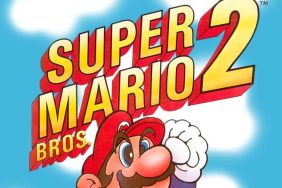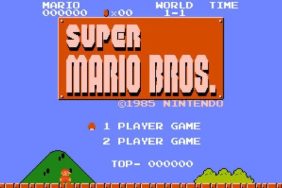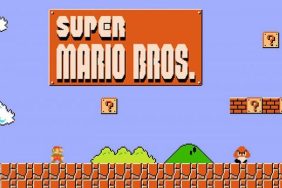
About six days ago, after a five-hour session of frenetic online multiplayer in Mario Kart 8, a thought occurred to me — a thought about importance. “What are the traits that define important games?” I echoed to myself. I’m not precisely sure why I began this internal line of questioning. But with my hair unkempt and my eyes just the tiniest bit bloodshot, I began to think. The spark igniting my armchair gaming philosophy, it seemed, was fear. The fear that the sheer weight of Mario Kart 8, its singular, rock-like ubiety as both a Wii U mega-release and a Nintendo milestone, would somehow be lost in translation. The game has a “high eight” on aggregators like GameRankings, and in my own review I refrained from awarding it a perfect score. On one hand I suspect Mario Kart 8 has already built a standing legacy for itself, and yet, its GameRankings composite rests a mere single percentage point above the likes of GameCube’s arguably lackluster Double Dash!! I felt uneasy, to say the least.
Flash forward to this morning, and I’ve since spent a lot of time with Mario Kart 8: the most I’ve ever spent with the series. Though I don’t think I’d change my review score, I wish there was a way to get across to gamers that, yes, the game is a 9/10, but also include an asterisk stating in all caps that “THIS GAME IS EXTREMELY PROGRESSIVE IN SO MANY WAYS FOR NINTENDO AND ALSO IT’S GORGEOUS AND THE ONLINE PLAY IS BRILLIANT BUT IT’S NOT A TEN BECAUSE THEN WHERE DO FIRE EMBLEM AWAKENING AND THE LAST OF US GO?? BUT THIS GAME IS GREAT YOU MUST PLAY IT.” This would be overwhelming, to say the least — clearly not a good idea.
Reviewing games instead requires a level head, and it’s only occasionally that the framework of a review itself feels like a limitation that represses what it is you want to say. This is particularly true when it comes to relaying precisely where a game fits into the bigger picture. For whatever reason, Mario Kart 8 for me is one of those games, and try as I might, there are larger forces at play here that can’t be easily summated by the typical game review. It’s difficult to pinpoint.
There’s a subtle weightiness to MK8’s online experience; I think that may have something to do with it. The game offers both single and two-player online (meaning you and a friend can join the same online race from one Wii U), but regardless of which mode you choose, there won’t be much verbal or even text exchange occurring between competitors. The reason is because Nintendo has limited communication to a list of pre-prepared phrases between player Miis; things like “Good game!” or “Not fair!” Pretty simple stuff. When first playing I shrugged my shoulders, assuming it was the easiest way to keep kids from seeing nasty internet behavior, and moved on.

And yet, a funny thing happened after spending five plus hours hurtling around the Mushroom Kingdom online. Remember how you felt playing Journey with a complete stranger? It was almost like that. A sense of connectedness and unity, a bond that only forms between silent travellers with a common goal in mind. Normally I’d rage Halo 2-style at an unfair and untimely loss to a player half my age, but when you’re plugged into Miiverse and Mario Kart 8, and the kid who just bested you turns his head and chimes “Good game!,” suddenly you’re dealing with something entirely different. I won’t get so cheesy as to suggest that we’re all in this together, just dodging the Blue Shells of life, but know that I thought about saying it. And indirectly just did.
The benefits of such serenity online are numerous, the foremost being that any and all frustration has a tendency to melt away. Once you realize it’s impossible to consistently be the best (as is the nature of any Mario Kart, but especially here thanks to superb balancing), you instead aim for small victories. “If I place at least 5th this race, my online score will go up, not down.” I’ve found it helpful to simply aim to never subtract points from my score, and this laid-back approach has paid dividends; since adopting it I’ve had more first-place finishes than my previous 15 hours of online play combined. Could it be that I’ve simply improved over time? Maybe. But any athlete will tell you that competing is at least 75% mental once you have the skills.
A state of calmness while playing online is something that, I think, trickles down from a larger vision for Mario Kart 8, and what the game will mean for Nintendo years from now plays a large part in that. Already, MK8 has seen unprecedented buzz and word of mouth within the gaming community. When was the last time you saw something Nintendo-related go as viral as Luigi’s Death Stare? This is a meme that blew up Reddit for days, only to conquer Tumblr shortly thereafter. I remember when Skyrim came out, and the gaming subreddit was plastered with Skyrim jokes and screenshots for quite literally weeks, if not longer. I have no issue with Skyrim, but I couldn’t help but feel sad inside. “There was a time when Zelda made this big of splash in the gaming community.” Little did I know it’d be Mario Kart 8 that would restore balance to the universe, and re-ignite Nintendo-love across gamedom — even if just for a little while.
In my review of Mario Kart 8 I suggested that Mario’s high-pitched shriek of the game’s title implies a lingering uncertainty from Nintendo (and the plumber himself) about Wii U’s future. With console hardware flagging, it can be easy to forget that Nintendo is arguably experiencing a golden age, spanning every IP it’s decided to touch since around the death of Nintendo DS. On Wii, Zelda and 3D Mario were top-notch, but that’s common and expected; Skyward Sword and Super Mario Galaxy were tasked with proving that Nintendo’s underpowered device could successfully host triple-A titles. Conversely, what exactly did Mario Kart Wii have to prove? That the exorbitant number of Wiis sold could be made even more so? The game shifted unprecedented numbers (35 million, to be precise), but I don’t recall caring about it all that much, nor do I remember copious amounts of internet buzz. Maybe it’s just me.
While developing Fire Emblem Awakening, the staff at Intelligent Systems were told that if the title continued the series’ downward sales trend, it may be the last Fire Emblem game. Understandably flustered, the team banded together and produced what is widely seen as the most delicately crafted and content-packed entry in the series. With Mario Kart 8, there were no higher-ups threatening to can the franchise; Mario is Nintendo, and if EAD Group No. 1 in Kyoto can’t save the Wii U, then who can? Instead, the Wii U itself — a ticking time bomb — was their motivator, and you can feel the urgency woven into every corner of the game. Mario Kart 8 is an important release precisely because its developers firmly believed that it was. They had to. And really, who else can determine such a thing?
Recently, Polygon predicted treacherous doom-and-gloom for Mario Kart 8 upon its release. With over 1.2 million copies sold during its first weekend, I’m beyond relieved that their prophecy failed to fulfill itself. Still, I feel it’d be best if Wii U doesn’t instantly revive itself the way 3DS did. Nintendo needs to face reality; they’re not untouchable, it is possible for them to fail, and they are, in fact, mere mortals. Mario Kart 8 is a monumental effort — from development, to marketing, to extreme word of mouth — but things should never have sunk this far. I love Mario Kart, and for the sake of the series I hope that subsequent entries are as delightful and stunning as Mario Kart 8 is. For the sake of Nintendo, though, I sincerely hope they don’t have to be.








